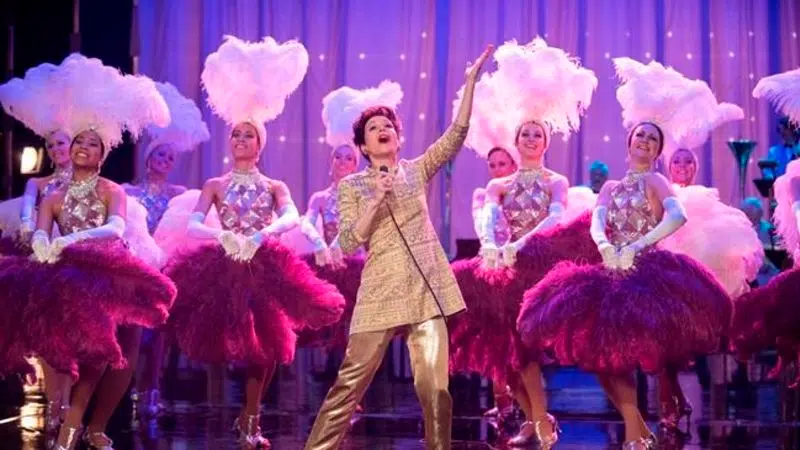
Review: Renée Zellweger captures Garland’s essence in ‘Judy’
Renée Zellweger is so undeniably perfect as Judy Garland that it almost makes up for the shortcomings of the film around it. “Judy ” is itself a fine and imperfect look at some of Garland’s last years of life, but it really should have been something transcendent — Zellweger’s performance demands it.
Inspired by Peter Quilter’s play “End of the Rainbow,” ”Judy” drops in on Garland in late 1968 and early 1969, another down moment in the star’s turbulent life. Garland at this point is 46 and looks older — a lifetime of pills, smoking, weight loss, weight gain and booze has taken its toll and she has been whittled down to a wisp of a person. She also in the midst of a contentious divorce from producer Sid Luft (Rufus Sewell), who gambled away all her money at the race track, somehow still got the house and is trying to get custody of their two young children, Lorna (Bella Ramsey of “Game of Thrones”) and Joey. Liza Minnelli (Gemma-Leah Devereux) at this point is grown and pursuing her own career in showbiz.
Garland’s life in the present is painfully unsettled. She is living out of suitcases in hotels and dragging her kids around to be in her low-paying gigs. There is something unspeakably sad about the fact that Garland, despite all of her success, her talent, her fame and over 40 years of giving everything to the performance, still had no place to call home. She is a vaudeville vagrant. Her home is on stage, her family is the audience. And at the moment, she’s the “unreliable” and “uninsurable” bad seed that no one in her home country wants to deal with.
It’s why she reluctantly signs up for a series of shows in London at the Talk of the Town cabaret. The Brits still idolize her and are willing to pay. For Garland, it’s a chance to make enough money to buy a house so she might have some hope of getting custody of her children.
